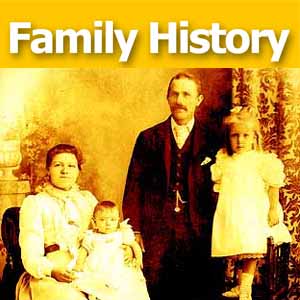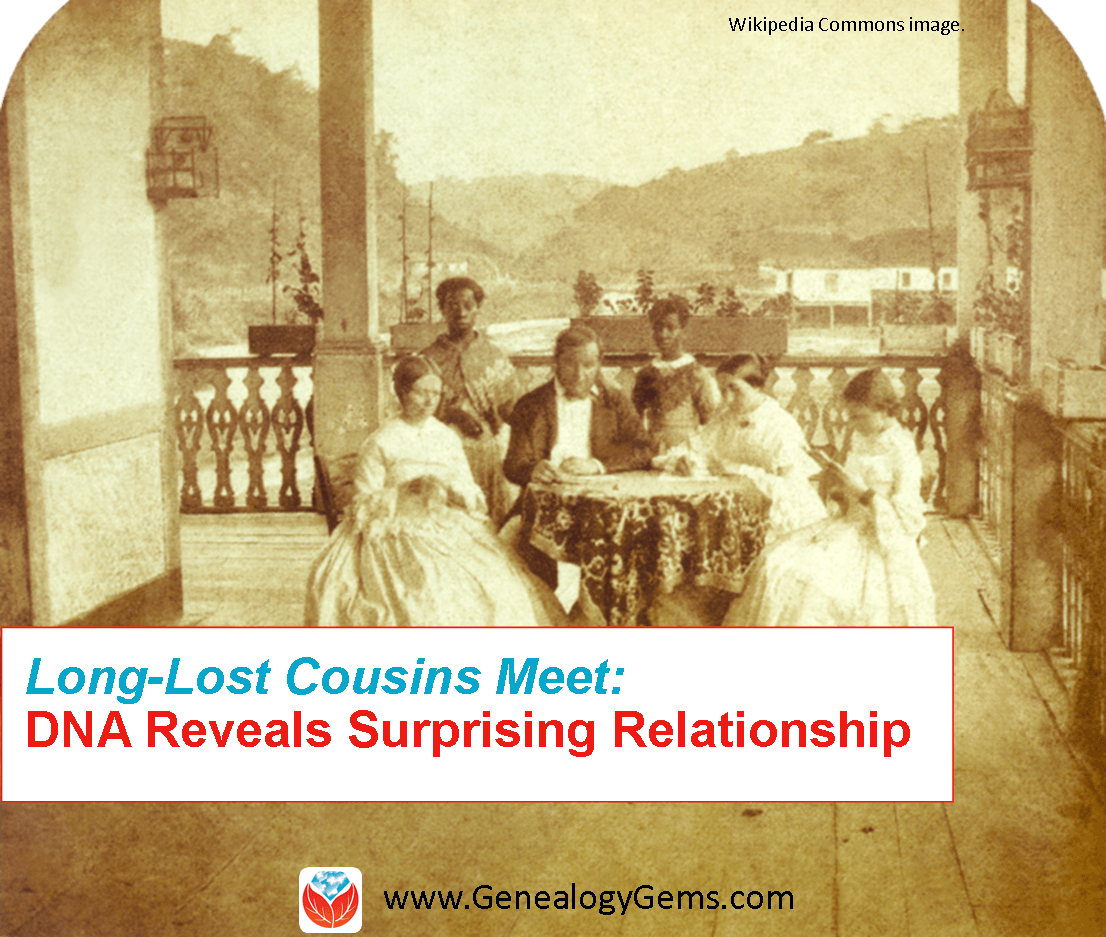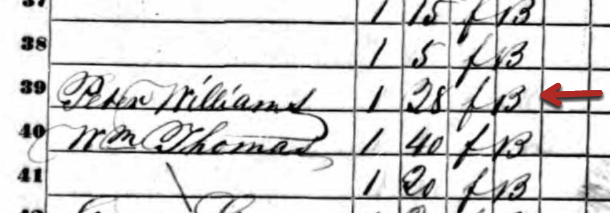by Lisa Cooke | Jan 7, 2014 | 01 What's New, Ancestry, DNA, Family History Podcast, FamilySearch, Organization, Photographs

No episode! But lots of good updates. Keep reading….
UNLUCKY Episode 13: Genetic Genealogy and Photo Sharing
Episode 13 of the original podcast reviewed genetic genealogy and photo sharing products that are either now longer offered or are outdated. This episode is not being republished with the series.
Fortunately, lots of advances have been made in both genetic genealogy services and photo sharing and tagging, and we’ve got lots of current resources for you.
Genetic Genealogy (DNA)
Start here where you’ll find answers to common questions, a free introductory video, and additional DNA resources
Next, listen to my interview with Dr. Turi King, who used DNA to identify King Richard III. That interview is on my Premium Podcast (available by subscription) and talks about what DNA can tell us–and what it can’t.
Another interview you might enjoy is with Bennett Greenspan from Family Tree DNA, featured in Premium Podcast Episode 92.
 (Not a Premium Member? Check out all the great membership benefits–including members-only premium podcast episodes, full access to the premium podcast archive for an entire year, video recordings of some of my most popular classes and even premium videos that teach you some of the most important skills for 21-st century genealogists.)
(Not a Premium Member? Check out all the great membership benefits–including members-only premium podcast episodes, full access to the premium podcast archive for an entire year, video recordings of some of my most popular classes and even premium videos that teach you some of the most important skills for 21-st century genealogists.)
Free Photo Sharing Resources
Flickr
Photobucket
In addition, remember that Ancestry.com, FamilySearch.org, MyHeritage.com and other genealogy sites have excellent photo-sharing services for those who don’t mind sharing their images with the public.
by Lisa Cooke | Oct 15, 2015 | 01 What's New, Adoption, African-American, DNA, Health History
Two cousins recently chatted after learning that they share DNA. The first asked whether the second is white. “No,” she answered. The response: “Are you sure?”
In our modern society, families are defined in a myriad of different ways. Using DNA for genealogy is certainly contributing to these

A family and its female slave house servants in Brazil, c.1860. Wikimedia Commons image. Click to view full source citation.
changing definitions, as families find themselves genetically linked across social and cultural boundaries to kin they never expected.
Such is the case for a Bartow, Florida resident who submitted a DNA test out of curiosity and found more than she expected. Through a combination of DNA testing and social media, Mary McPherson, who is white, met one of her cousins, Dolores Washington-Fleming, who is black.

Peter Williams’ entry in 1850 U.S. Census Slave Schedule, St Bartholomews Parish, Colleton, South Carolina. Image from Ancestry.com.
According to an article on The Ledger, the two women share a great-great-grandfather, Peter Edward Williams, who was born in South Carolina two centuries ago. Peter was a slaveholder. The 1850 census slave schedule shows that he held a female slave who was a few years younger than she was. Dolores believes that’s her grandmother’s grandmother.
The two finally met this past May for the first time and enjoyed this new definition of family. I think what I like most is what Dolores’ son said about the situation: “My mom and I are fascinated by history, and this is history. We represent what the times were like back then.” It still boggles my mind just a little that we are able to use the DNA of living people today to resurrect the past, and bring depth and meaning to the present, and possibly even prepare us for the future.
I find myself in a similar situation to Dolores and Mary. My mom was adopted, and even though we have had DNA testing completed for several years, we didn’t have any close matches, and honestly, we weren’t looking. Though she did have a passing interest in her health history, my mom did not feel the need to seek out her biological family. But then over the last few months various pieces of her puzzle have started to fall into place. This is much because of a key DNA match that popped up in March.
With that one match and subsequent correspondence, our interest in my mom’s biological family has skyrocketed. Why? I think it is because our DNA match, sisters from Texas, have shown us genuine kindness and interest. They have truly shown us what it means to be family. Even though we are unexpected, even though we aren’t sure yet how exactly we are connected, they have embraced us without reservation without hesitation.
To me, this is what family is. They accept you in whatever condition you come in and do their best to make you feel like you belong. Now, that kind of welcome isn’t felt by everyone who meets their genetic cousins, and people should carefully consider whether they’re ready for unforeseen results or unanticipated reactions from DNA matches before they get started.
But what about you? If you’ve started down the genetics path, how has DNA testing expanded or strengthened your definition of family?
Learn more about DNA testing for genealogy–how to get started or how to make sense of testing you’ve already had–with my quick guides available at the Genealogy Gems store, and then contact me at YourDNAGuide.com to arrange your own personal DNA consultation.
Resources for DNA for Genealogy
DNA Quick Guides for Genealogy (Bundle them for savings!): Getting Started, Autosomal DNA, Y Chromosome DNA, Mitochondrial DNA, Understanding Ancestry,  Understanding Family Tree DNA
Understanding Family Tree DNA
New AncestryDNA Common Matches Tool: Love It!
Confused by Your AncestryDNA Matches?
 Thank you for sharing this article with others by email or on your favorite social media site. You’re a gem!
Thank you for sharing this article with others by email or on your favorite social media site. You’re a gem!
by Lisa Cooke | Aug 30, 2013 | 01 What's New, Ancestry, MyHeritage, Records & databases
It’s a holiday weekend, so you know what that means? Genealogy record websites that are usually only available by paid subscription open up some of their collections for free. Here’s where you can get access to family history resources this weekend:
subscription open up some of their collections for free. Here’s where you can get access to family history resources this weekend:
MyHeritage
providing free access – from August 31 through September 2, 2013 – to all US Census records.
Click here to Search Now
Ancestry
providing free access to its collection of Immigration and Travel records through Labor Day including:
- passenger lists
- passports
- border-crossing records
- citizenship and naturalization records
Requires a free Ancestry.com account Click here to Search Now
by Lisa Cooke | Sep 18, 2013 | 01 What's New, British, Census, FamilySearch, Immigration, Military, Records & databases
It’s hard to keep up with the content constantly being added online at FamilySearch! If you (like me) spent the past month squeezing the last bit of travel an d sun from the summer, you may have missed some great new content. Here’s a recap:
d sun from the summer, you may have missed some great new content. Here’s a recap:
This month, over a half million indexed records and images have already shown up from Czech Republic, Hungary, Poland, Guatemala, Italy, New Zealand and the United States. Highlights include updates to the United States Social Security Death Index, images from the Czech Republic, Censuses, 1843–1921, collection, indexed records from the Hungary, Civil Registration, 1895–1980, collection, images from the new U.S., Indiana, Naturalization Records and Indexes, 1848-1992, collection and the Italy, Mantova, Mantova, Censuses (Comune), 1750-1900, collection, and indexed records from the U.S., Maine, State Archive Collections, 1718-1957, collection.
In August, FamilySearch.org added more than 45 million indexed records and images from BillionGraves and from Italy, the U.S., England, New Zealand, Sweden, Italy, Jamaica, Chile, Honduras and more. Notable U.S. additions are updates to the New Orleans Passenger Lists and newly-indexed war collections, including: the United States, World War II Prisoners of War of the Japanese, 1941-1945, collection, the United States, Korean War Battle Deaths, 1950-1957, collection, and the United States, Casualties of the Vietnam War, 1956-1998, collection.
A few more cool additions include:
- More than a half million images to a growing collection of Italy’s Civil Registrations;
- Nearly a million indexed Jamaican and a quarter million Chilean civil registrations;
- More than 2.5 million indexed recods from New Zealand passenger lists (1855-1973);
- Nearly a half-million indexed names from Boston passenger lists (1820-1891);
- Over 41 million indexed names added to the U.S. Public Record Index.
Search these and 3.5 billion more records at FamilySearch.org. Records are always free to search here, thanks both to the organization itself and thousands of volunteers around the world who index records. Join the effort here!
 (Not a Premium Member? Check out all the great membership benefits–including members-only premium podcast episodes, full access to the premium podcast archive for an entire year, video recordings of some of my most popular classes and even premium videos that teach you some of the most important skills for 21-st century genealogists.)
(Not a Premium Member? Check out all the great membership benefits–including members-only premium podcast episodes, full access to the premium podcast archive for an entire year, video recordings of some of my most popular classes and even premium videos that teach you some of the most important skills for 21-st century genealogists.)



 Understanding Family Tree DNA
Understanding Family Tree DNA Thank you for sharing this article with others by email or on your favorite social media site.
Thank you for sharing this article with others by email or on your favorite social media site. 
 d sun from the summer, you may have missed some great new content. Here’s a recap:
d sun from the summer, you may have missed some great new content. Here’s a recap: